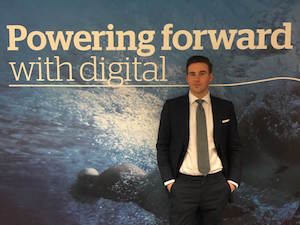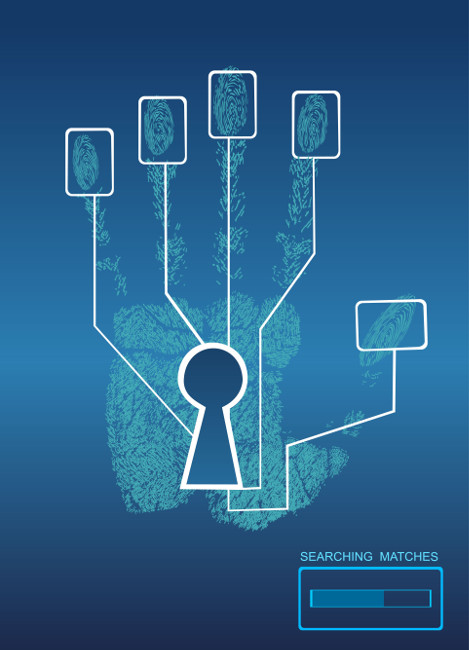
[Interview] Juggling A Corporate Job and A Side Business - Part 2
Mia Bennett is the Head of Alliances and Special Projects of PwC, a Big-4 audit and consulting firm. Mia has been working in consulting and technology for more than 10 years, with an interest in mobile, startup, innovation (her current obsession is Blockchain. She found a mobile app development agency, spun a series of products and projects that were featured by the BBC, the Guardian, WIRED, Fast Company and the Museum of Modern Art in New York.
If you are an idea person, a startup that wants to engage with big companies or a corporate employee who wishes to make things happen, you find a lot of useful tips in this interview.
(Click here to read part 1 of the interview.)
CD: Besides working with startups as part of your job at PwC, you are personally involved with startups. Could you please share some of the startups you have started?
I started an agency back in 2009. Through that, we built a number of product and later took them to market. The ones that were successful were later spinner into their own startups.
We also experimented with joined ventures and open innovation. We regularly brought together complementary talent and companies together to form new projects.
Over the years, the group of companies have grown from 4 to 50 people, and we are fully self-sustaining.
CD: What appeals to you more: starting and running a startup or investing and advising one? What are the pros and cons?
MB: I have been involved in both and get excited by both side. Having built a few companies, I feel at this moment in time I can add more value by advising and investing, helping startups scale. During my time at the firm, I have been focused on value and spotting opportunities. Facilitating deals and woking on win-win scenarios are what I am mostly focused on at the moment.
I have specifically been excited about the opportunity to invest in Iran, where I am originally from. Over the years, I have made a few investments and launched projects that have done exceedingly well.
CD: I’ll do the same then, go back to Vietnam and launch something.
MB: Absolutely. With emerging market, knowing the market itself is hugely useful. That insight mixed with the right team will really provide an advantage.
With one of our products, we launched the beta version, in few weeks, we had 100,000 customers. And then the challenge was not traction or revenue but how to recruit a team and continuously improve the product.
 {:class="tcenter" }
Fruitcraft, a multiplayer online collectible card game app on mobile.
{:class="tcenter" }
Fruitcraft, a multiplayer online collectible card game app on mobile.
CD: Which role do you like more? Starting or advising? MB: When I was younger, I had more energy, and I wanted to be more of a startup person. I spent weeks studying new technologies, learning design, making animations, pretty much everything. Now I realize there are people who can do things much better than me, so my preference now is to find people who are much better and more capable than me and get them together to collaborate. That lends itself into advising and investing.
If I’m involved in a startup, I tend to lead strategy and relationships and let the team implement. For me it’s all about the team and empowering them to do whatever they are great at and not being rigid about how things should be done.
 {:class="tcenter" }
The team
{:class="tcenter" }
The team
CD: What tips do you have for people who are working on a full-time job and want to start a business on the side or try out a business idea? When is it OK to do both? When is it the right time to drop one and focus on another?
MB: I think once you have an idea, you need to understand the problem you’re trying to solve and then testing any assumptions that have been made. Testing and validating can be done in parallel with having a job. It’s about doing small tests, talking to people, looking at what’s going on, maybe building something for the user to try. That doesn’t need a company. It needs to lead to clarification. What is the value proposition? What are you trying to do? Who are your customers exactly?
My rule of thumb is to figure out who will be your first 100 customers for consumer products or the first 5 clients if you are a B2B company. You need to figure that out in parallel to a day job.
Once that is done, and you are still confident that you want to continue, it’s time to focus on the venture.
CD: Dave McClure from 500 startups says that “Your first customer shouldn’t be your mother.”
MB: Yes. A lot of time people are focusing on the idea. And they forget about customers and growth in the market.
CD: You are involved in a few mobile app startups. What do you think about mobile application security? Do you think startups aware of this serious issue? What measures have they taken to address this issue?
MB: I have to agree with you. When we initially started, we were a very small team and agile team. We didn’t have anyone with a security background. Thankfully as we were working in iOS platforms, Apple is quite rigorous and in a way, forced us to be secure.
Android is a different story. You can do anything and publish anywhere, not much checking around it.
The consumers need to know about security. And startups need to think about these issues seriously, specially if they care about growth. Looking in the market bright people are working on these challenges and better solutions are being developed.
Have an interesting story to share? We'd like to hear about it. Contact us or tweet to us @TeskaLabs.
Most Recent Articles
You Might Be Interested in Reading These Articles

What Does This Millennial Think About Innovation: An Interview with Matthew Bingley, Client Innovation Executive of Atos
Some people seem to be of the opinion that technological innovation has been largely iterative over the past 30 years and whilst we have achieve a great amount in terms of improving quality of life, there hasn’t been any real ‘ground shaking’ innovation. I suppose these same people are arguing that the internet is an iteration on interaction and isn’t particularly revolutionary.
Published on March 08, 2016

Security Researcher Filip Chytry: Online Security Is an Unattractive Topic - until People Get Hacked
I studied at Applied Cybernetics school and worked on various fields: robotics, networks and programming. There I got curious about security and became increasingly passionate about the industry, trying to learn more about cyber crime and attempting to hack into my classmates‘ computers for fun.
Published on August 20, 2015

Now This Is Banking at Your Fingertips
How do you currently withdraw your money from an ATM? Is there any other way, you might wonder? Some banks, like Airbank in the Czech Republic and Tatra Bank in Slovakia, are offering a new way to withdraw your money.
Published on August 25, 2015
